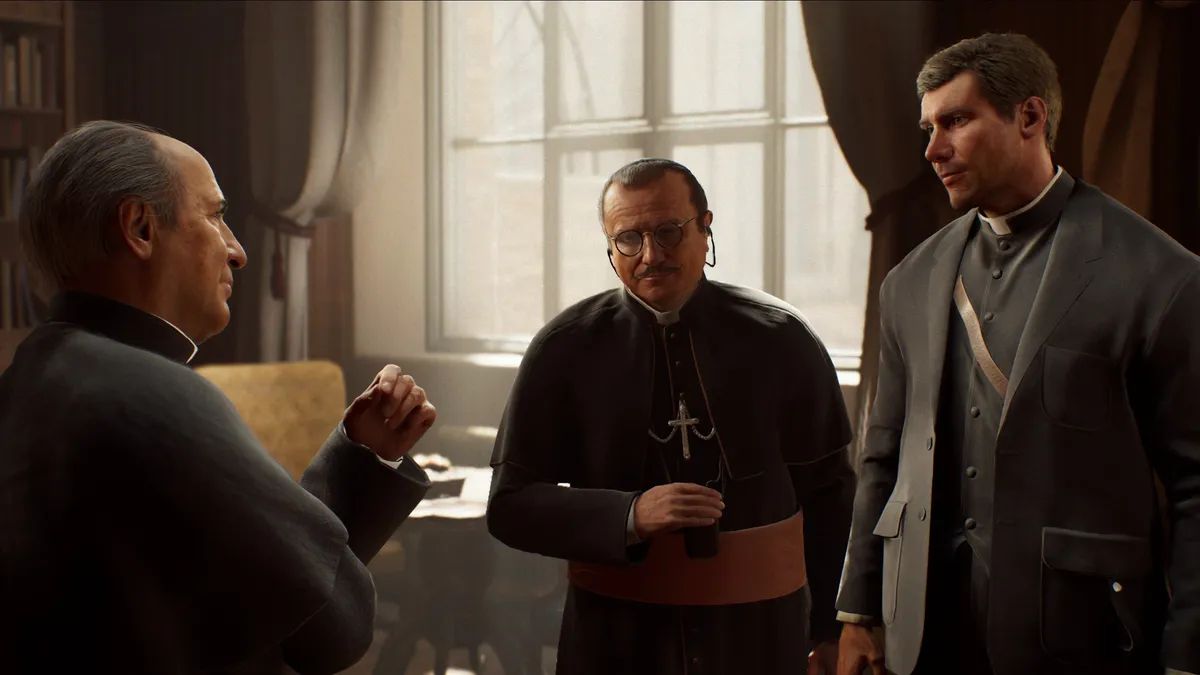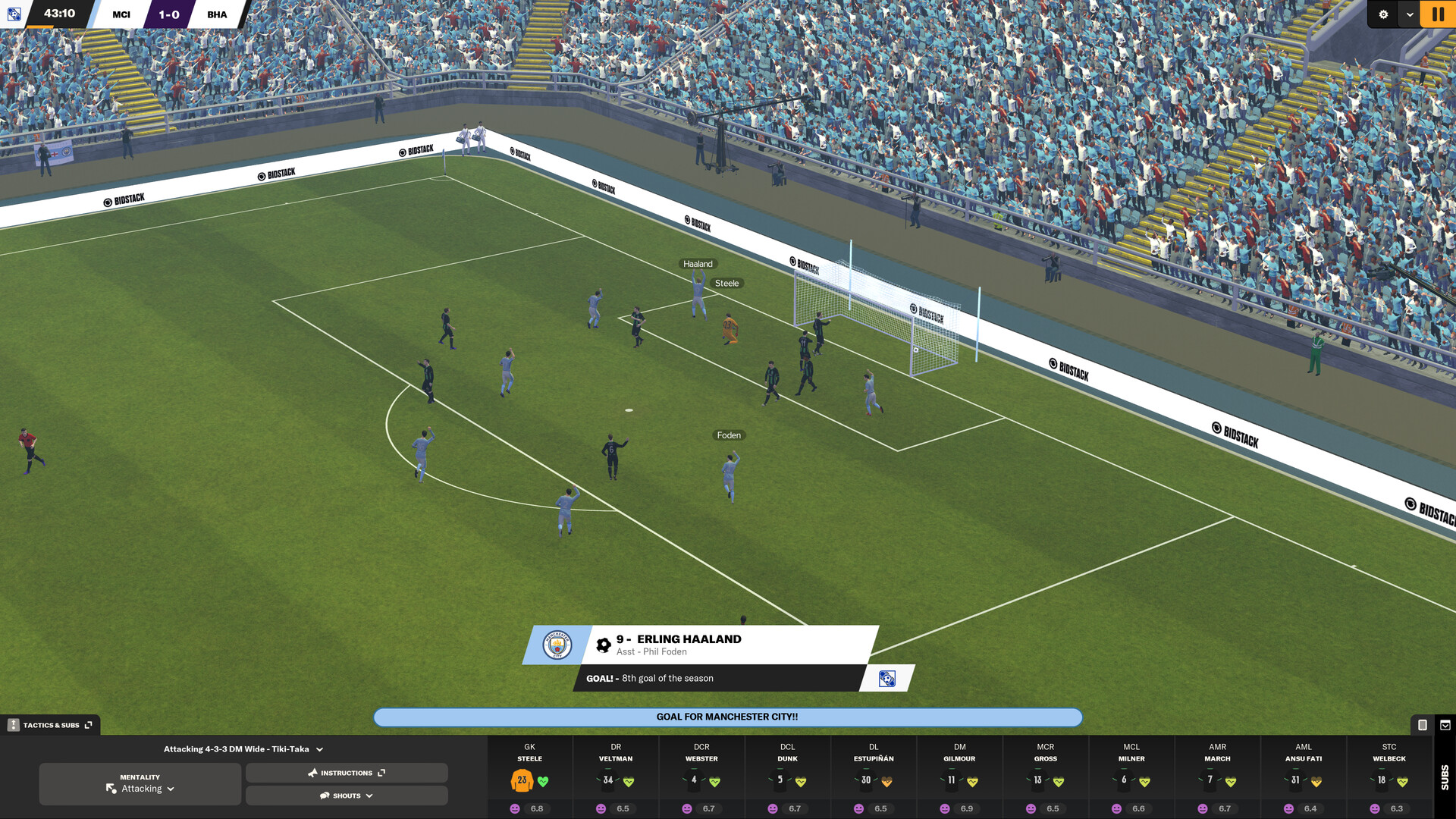A part of my brain will always be dedicated to the time someone in the Vatican pirated Football Manager 2013
You know it’s not the Pope, but your head goes there all the same.

10.1 million people have illegally downloaded Football Manager 13. At least, that was the number a decade ago. I imagine the download rate has dropped off a little since then in favour of newer editions of Sports Interactive’s perennial simulator, otherwise known as ‘catnip for dads’. But back in November of 2013, 10.1 was the figure.
We know this because the naughty souls who cracked Football Manager in May of that year made a mistake. There was a flaw in the version of the game they spread across filesharing sites, which meant Sports Interactive could track the IP address of everyone who illegally acquired it. I’m not familiar with the culture of internet pirates, but I reckon this is the sort of error that gets you laughed at by all your buccaneer peers. Like accidentally knocking a hole in the hull of your schooner, then getting too deep in your cups to notice your ship’s slowly sinking in Tortuga bay.

Within months, Football Manager figurehead Miles Jacobson was onstage at the London Games Conference, breaking down the stats for everyone. The il-league-al table, if you will. Portugal placed third with 781,785 downloads. Turkey took second place with 1.05m, and China led the pack with 3.2m. No trophies were awarded.
Italy didn’t trouble the very top of the board, which I gather is often the case when it comes to football these days. But the most notable case of piracy came from deep within Rome, in the microstate known as Vatican City. A single internet user from the Catholic Church’s tiny country decided they didn’t want to pay to live out their Ryan Reynolds Wrexham fantasy. This fact has lived rent-free in my head ever since—which might be a sore point, since the Pope asked cardinals to start paying rent last year.
As far as I’m aware, the Vatican doesn’t take issue with videogames per se. Sure, back in 2016, Pope Francis told over a million followers sprawled out on blankets in a Polish meadow that they should avoid isolating themselves on computers as “young couch potatoes”, and instead become activists in aid of a better world. But I broadly agree with him—the world would be improved if I spent more time attending protest marches, and less of it popping heads in Black Ops 6. What’s more, there’s at least one Vatican figure who has publicly and repeatedly declared a love for gaming. You may know Father Robert Ballecer from X—the ‘Digital Jesuit’ and priest who in 2019 set up a Minecraft server with the Vatican’s blessing.
“At first, there were a lot of people who were very hesitant,” he said. “Because they see this guy in a collar, talking about the latest offerings from Google or how you run fibre optics across the Atlantic, and they didn’t understand. They said, ‘Wait a minute, these two things don’t go together.’ But after time, people started to realise, ‘He knows what he’s talking about, he just happens to be a priest.’”
The server was quickly DDOSed, but that’s besides the point—the Vatican already knows the value of gaming when it comes to reaching new generations and providing community. I mean, they’re even preparing to canonise their first gamer saint. Football Manager is by no means off limits.
The biggest gaming news, reviews and hardware deals
Keep up to date with the most important stories and the best deals, as picked by the PC Gamer team.
But evidently, there’s a moral dimension to the story of the Football Manager pirate, and that’s what makes it so fascinating. The idea that the guys behind ‘thou shalt not steal’ might be queuing up torrents on the quiet—it’s the kind of delicious dissonance that powers stories like Conclave, the recent Ralph Fiennes film about the selection of a new pope.

Then there’s the enclosed and compact nature of the Vatican, which only compounds the sense of intrigue. As of 2018, there were only 618 citizens of the Vatican state, a scant 246 of whom actually lived within its walls (104 of those, by the way, were the Swiss Guard, the Papal honour unit who carry halberds and generally live the most Warhammer life imaginable).
In other words, the circle is so small that as a Vatican resident, you’re likely to either know the Football Manager pirate personally, or be that pirate yourself. It’s a mystery setup worthy of Agatha Christie, or Lucas Pope.
Yet it’s one without resolution. In theory, the Football Manager pirate could fess up at any time—assuming they’re still living. But 11 years on, it’s beginning to feel unlikely. If there was any internal investigation, its findings resounded only within the Vatican’s walls. And outside the city, memories are fading. When I brought up the story in PC Gamer Slack, not even my fellow journalists recalled Jacobson’s once-shocking revelation. The world, and Football Manager, has moved on.

So I’ll have to satisfy my curiosity through videogames. I’ll think of the Football Manager pirate when I get stuck into Indiana Jones and the Great Circle this Christmas, exploring a digital recreation of a wartime Vatican while undercover as a Catholic priest. I’ll think of them, too, when I infiltrate Angelwatch—the mechanist tower in Thief 2: The Metal Age which, if Conclave is anything to go by, bears an eerie resemblance to the living quarters of the Domus Sanctae Marthae, the Vatican guesthouse where cardinals stay while electing a new pope.
And I’ll have to be satisfied with the knowledge that the Vatican pirate appears to have learned their lesson. Just last month, Larian reported that among the many, many copies of Baldur’s Gate 3 currently in circulation, two are inside the Vatican. And they were both paid for. “Sold 2 copies of Baldur's Gate 3 in The Vatican, with 1 wishlist,” tweeted publishing director Michael Douse. “I'd like to think the latter is just the Pope waiting until he has a free minute.
“Wish I could see their mod list,” he added. “Bet it's absolutely gnarly.”
Jeremy Peel is an award-nominated freelance journalist who has been writing and editing for PC Gamer over the past several years. His greatest success during that period was a pandemic article called "Every type of Fall Guy, classified", which kept the lights on at PCG for at least a week. He’s rested on his laurels ever since, indulging his love for ultra-deep, story-driven simulations by submitting monthly interviews with the designers behind Fallout, Dishonored and Deus Ex. He's also written columns on the likes of Jalopy, the ramshackle car game. You can find him on Patreon as The Peel Perspective.


